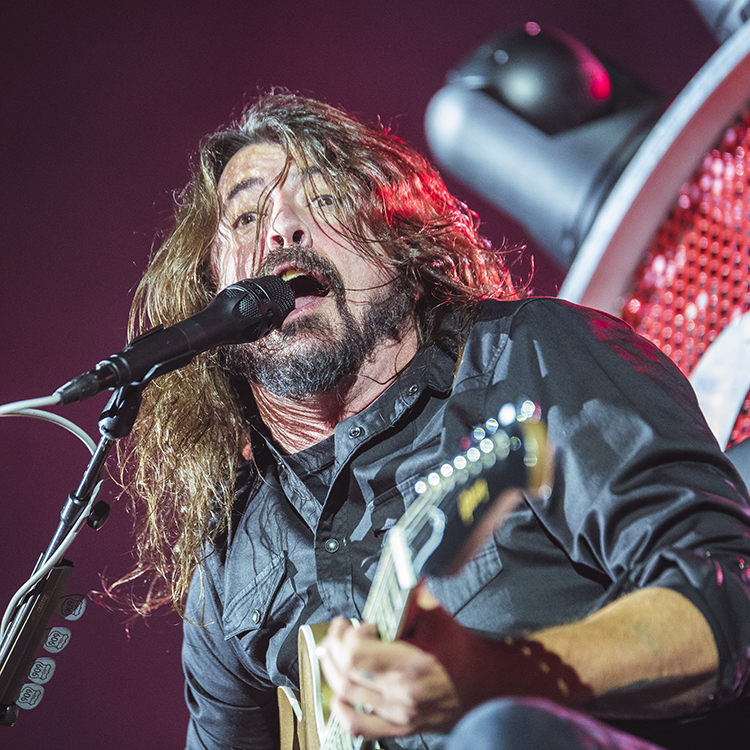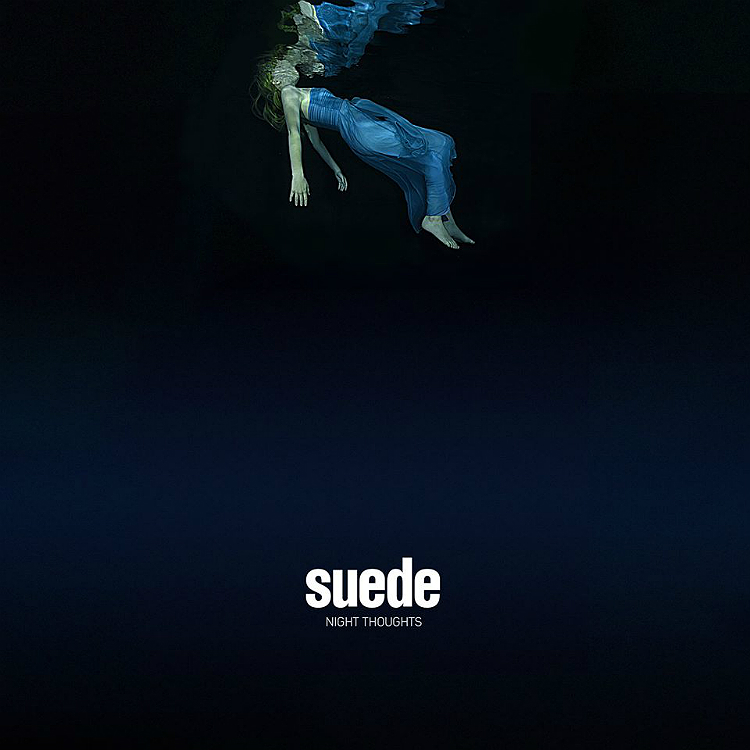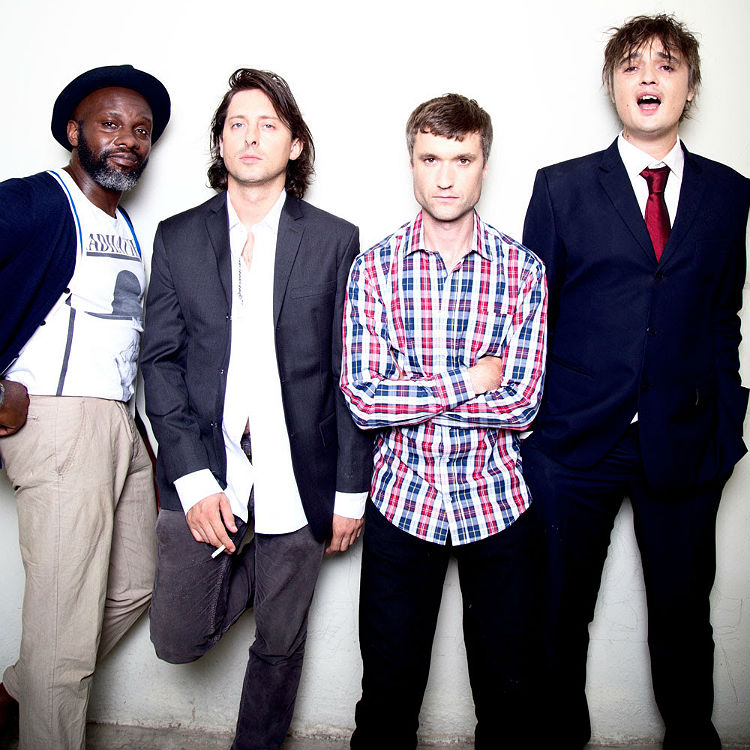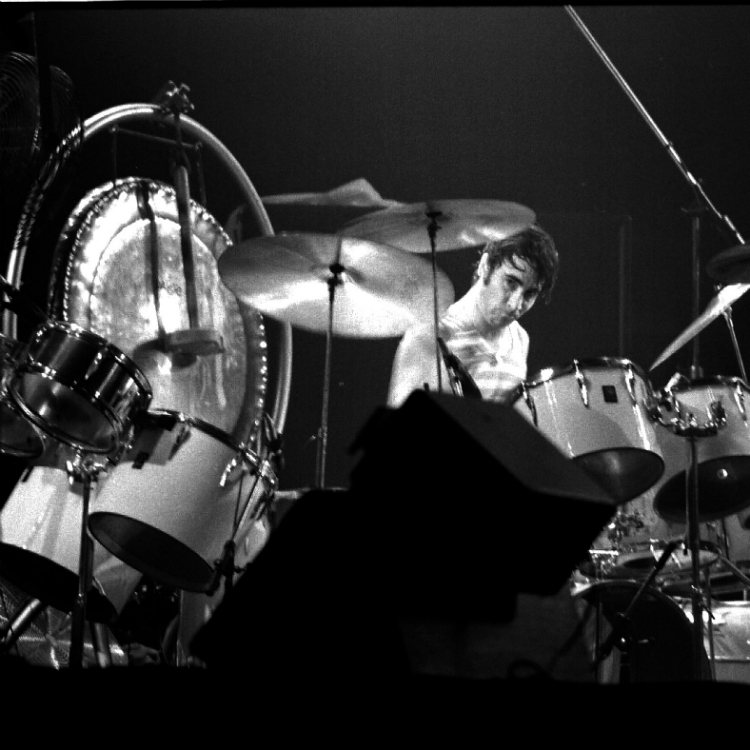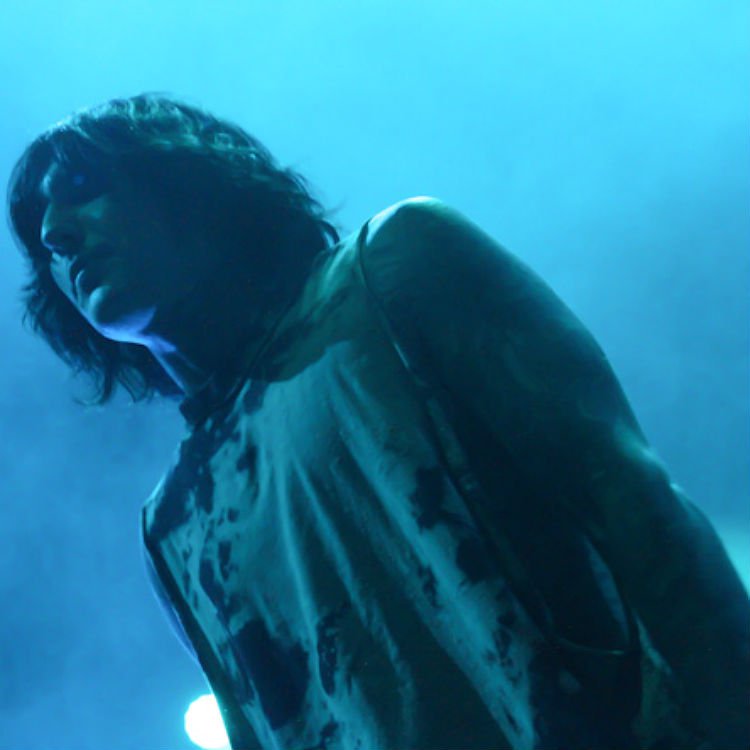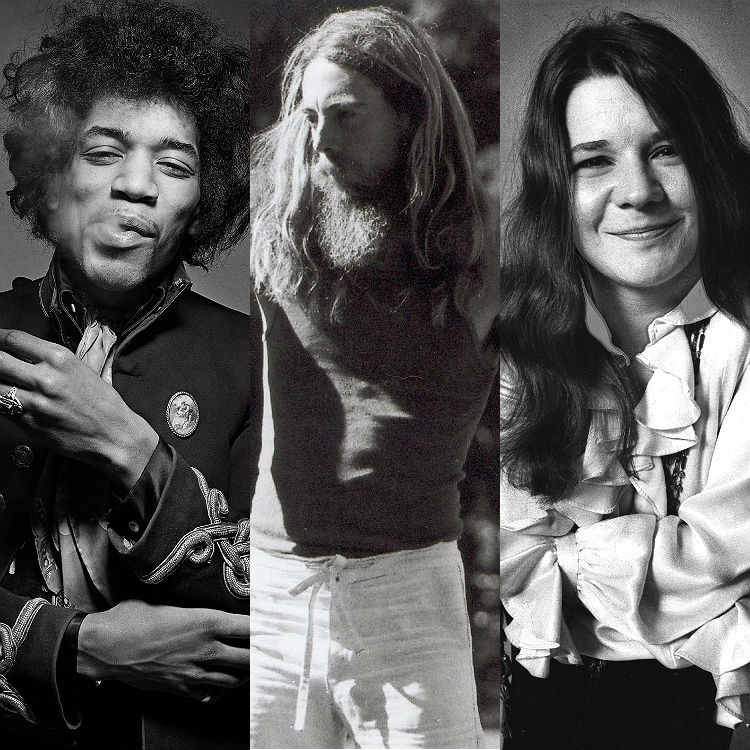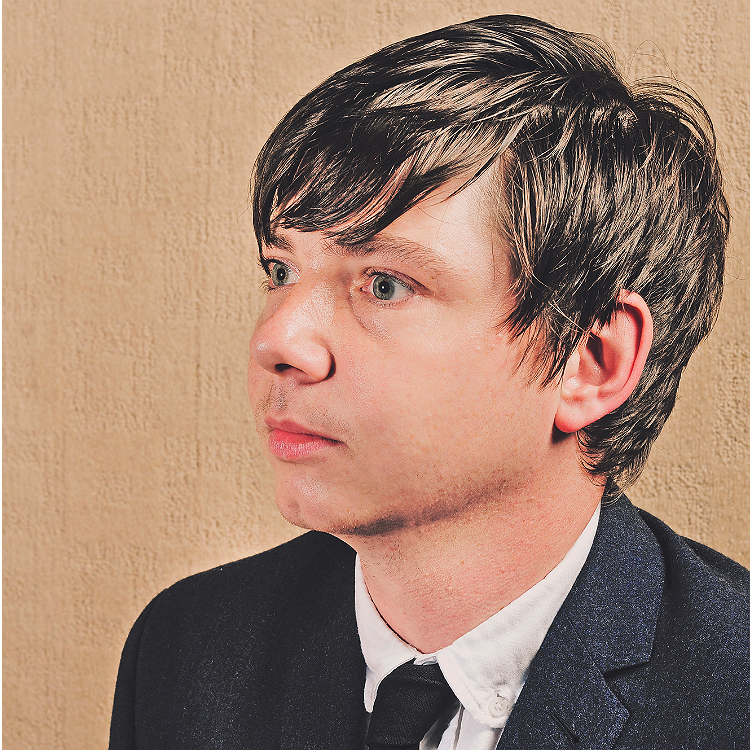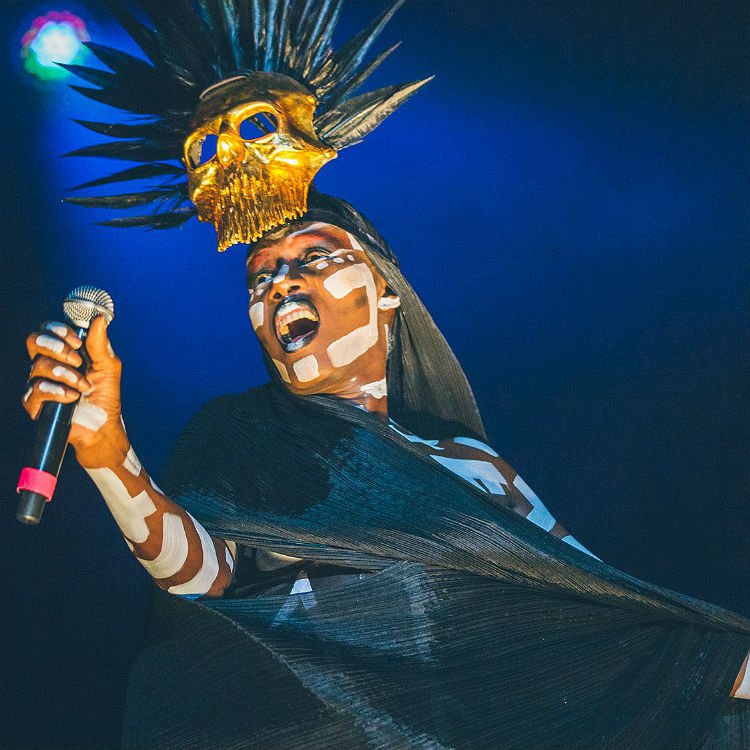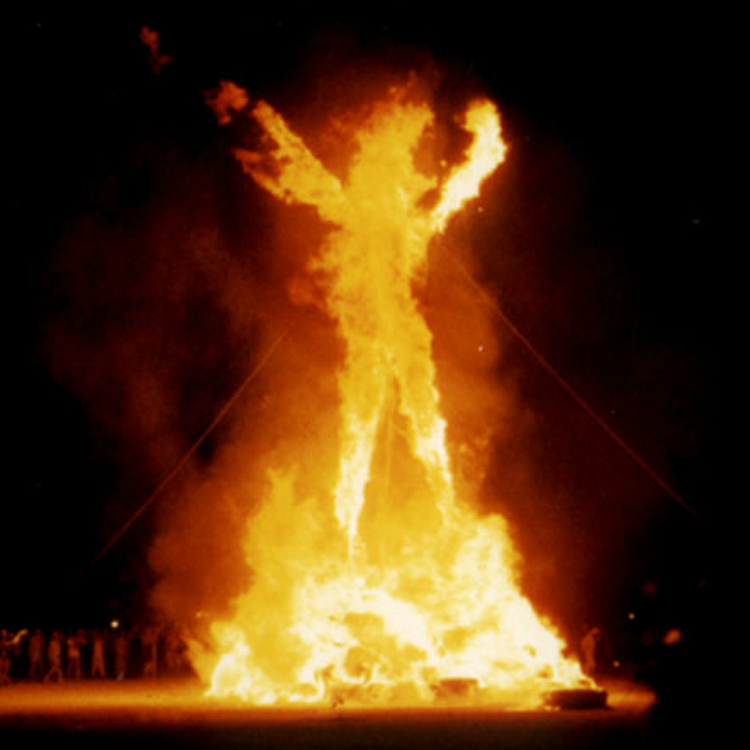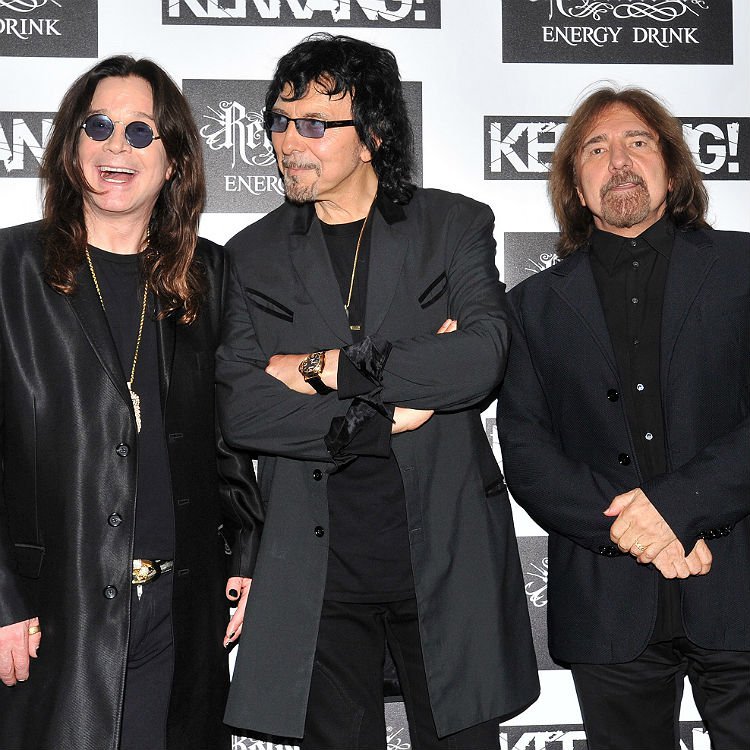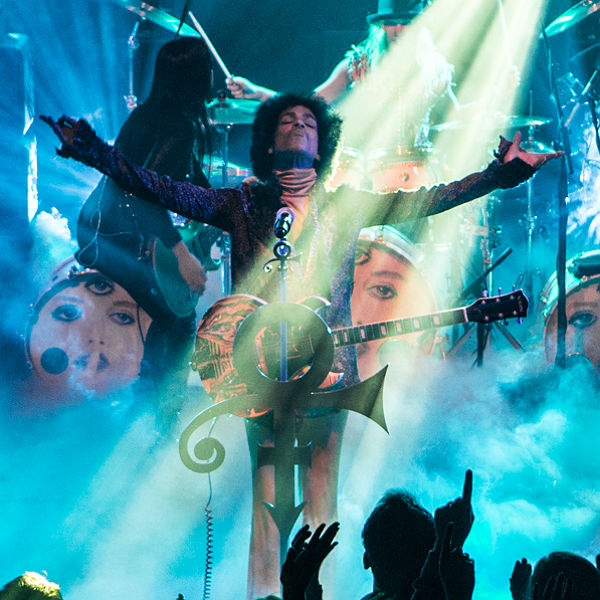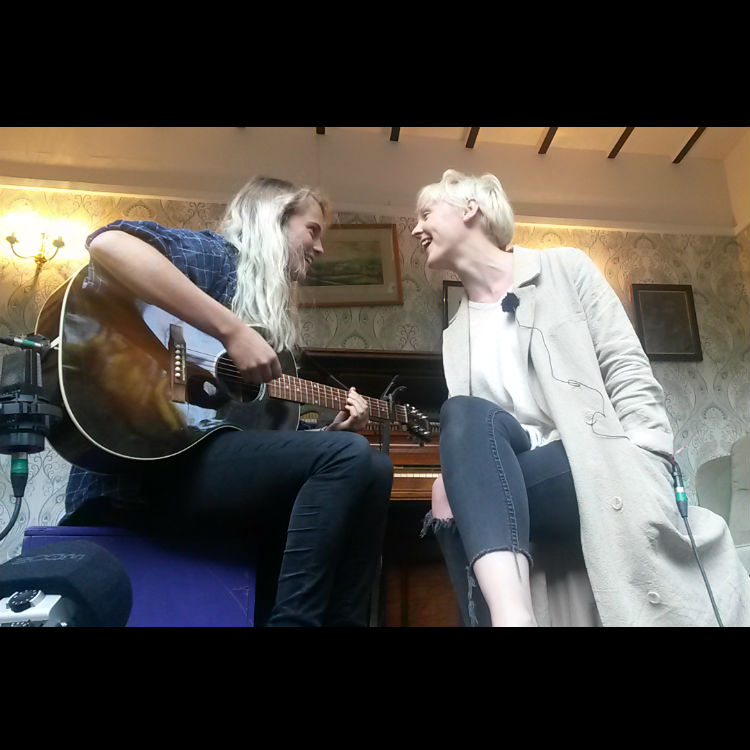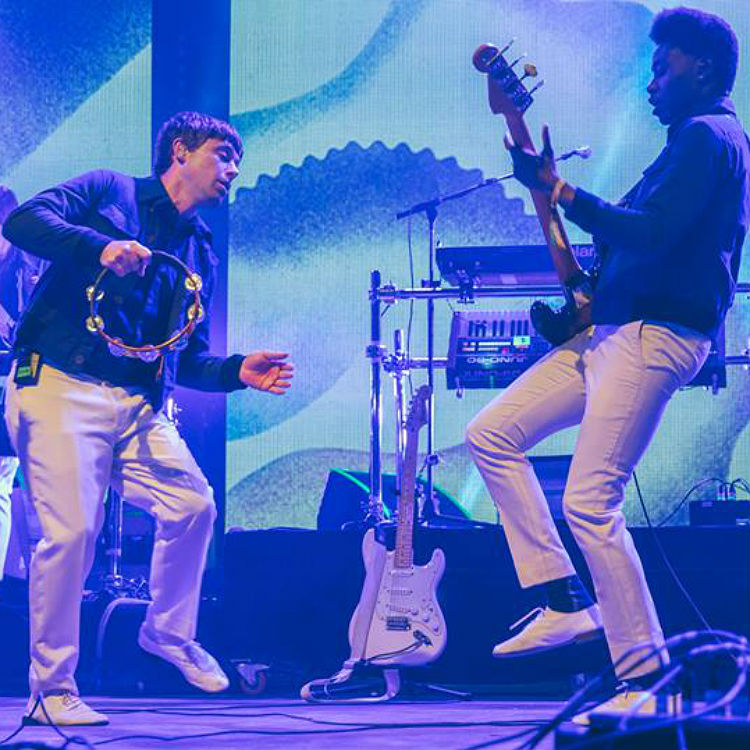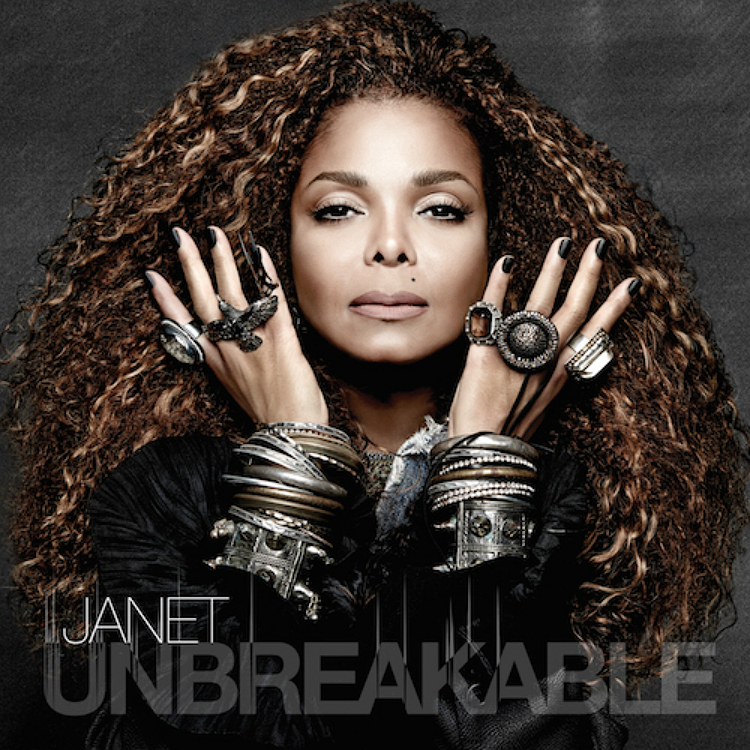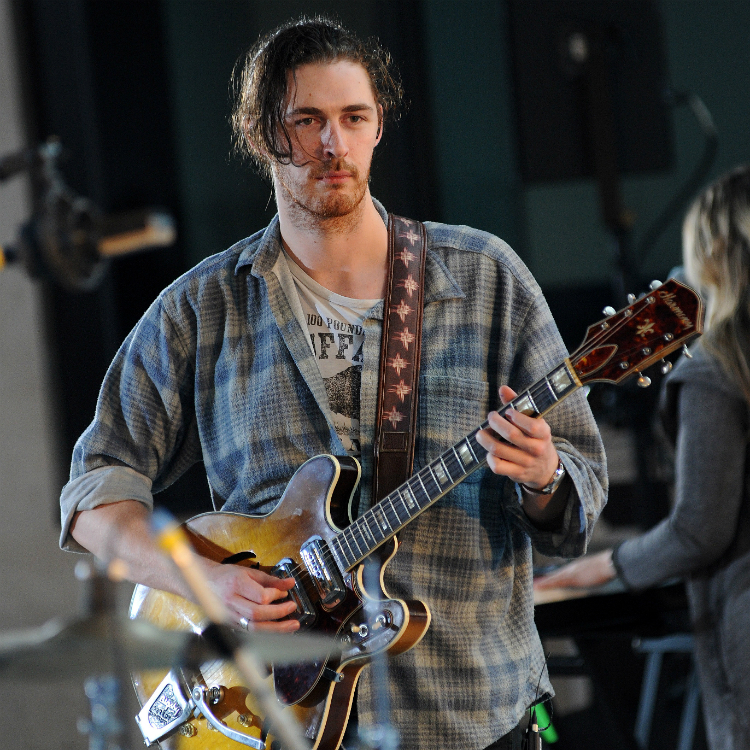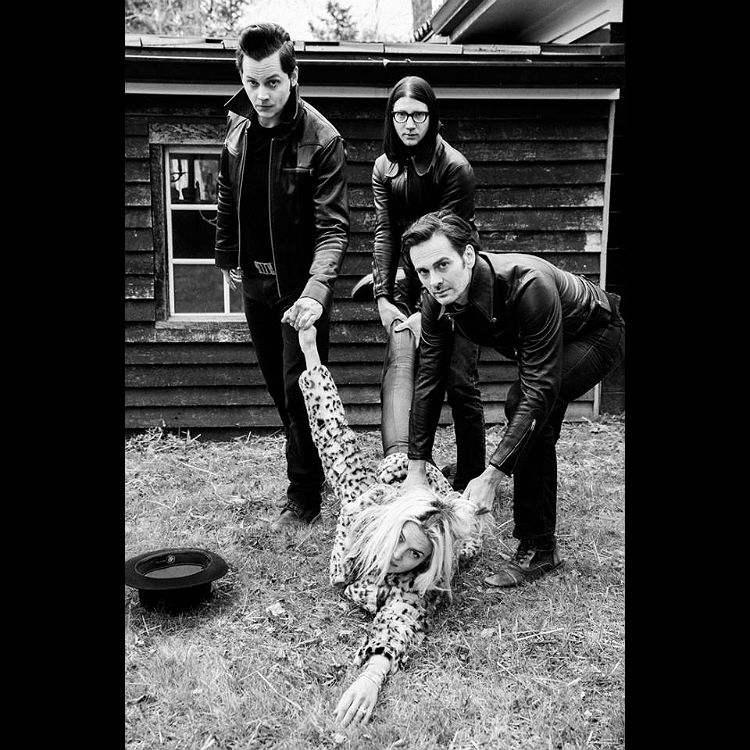 Photo:
Photo:

You’re 5. You’re walking along in your scarf and Wellington boots, kicking up a firestorm of autumn leaves when something glints momentarily in the corner of your eye, just holding your attention long enough to prevent you from taking a running jump into that enticingly muddy puddle. You kneel down and thrust your hand into the leaves, rubbish and mud and grab it. You open your hand. It’s a penny, a little dulled by the elements, but a penny nonetheless. Your penny, your treasure, your secret keepsake.
This is The National. They won’t dazzle you from the outset; they’ll enchant and entrance you, enticing you with all the splendour of their 2005 masterpiece, ‘Alligator’. Let ‘Abel’ beckon you through or ‘Looking For Astronauts’ gently lure you in, and at the point where you’re totally absorbed, that’s when they lock the gate behind them. They should have made the soundtrack to ‘The Secret Garden’…
“If we could make the musical equivalent of ‘Eternal Sunshine from the Spotless Mind’ then we’d be really happy – it was such a beautiful film.”
Well…close enough.
From his window, Aaron Dessner, guitarist and unsurprisingly pleasant interviewee, is overlooking the ever bustling Tottenham Court Road and the much fabled Astoria in which The National are playing later that week. On the band’s last visit to the UK, they played to a triumphant and ludicrously packed out KOKO and a year on, the band are rightly gracing the bigger stages their music deserves much to the excitement of Aaron.
 “I never thought we would play the Astoria. I’ve been there once before and it was just an amazing, huge place with a lot of history. It’s a little frightening because it’s an important venue but we’re excited about headlining it and flattered we have the opportunity to play there,” he says. A brief stop off as part of a considerable two-month transatlantic tour, despite having to traipse through most of central Europe as well as their intensive stateside dates, they’ve managed to pencil in a five night marathon at the Bowery, NY as well as a slot supporting the Arcade Fire. It’s quite the workload. “We’re supporting the Arcade Fire in May, and then we get a little time off before we do a couple of European shows – London, Paris, Berlin – then a big US tour and back to Europe for festivals. It’s around two months so it’ll be pretty intense and it’ll take a lot out of us.”
“I never thought we would play the Astoria. I’ve been there once before and it was just an amazing, huge place with a lot of history. It’s a little frightening because it’s an important venue but we’re excited about headlining it and flattered we have the opportunity to play there,” he says. A brief stop off as part of a considerable two-month transatlantic tour, despite having to traipse through most of central Europe as well as their intensive stateside dates, they’ve managed to pencil in a five night marathon at the Bowery, NY as well as a slot supporting the Arcade Fire. It’s quite the workload. “We’re supporting the Arcade Fire in May, and then we get a little time off before we do a couple of European shows – London, Paris, Berlin – then a big US tour and back to Europe for festivals. It’s around two months so it’ll be pretty intense and it’ll take a lot out of us.”
For many bands, venue upgrades typically denote success and/or progression and while The National are content to play the bigger venues, the disconnection from the humbler venues is a transition that doesn’t always sit well. “There’s some big venue’s that just don’t feel right and it’s hard to get connected to the audience. I think in England – even the bigger venues – are still fun to play there even though they’re pretty large. We prefer playing the intimate venues. In New York we chose to play the Bowery Ballroom, which has about a 600 capacity, but we’re doing it for five nights in a row. It is exciting to see the audience grow,” Aaron explains.
Adopted New Yorkers transplanted from Cincinnati and Ohio, (Matt Berninger, Aaron Dessner, Bryce Dessner, Bryan Devendorf, and Scott Devendorf), The National released ‘Alligator’ to a swathe of critical acclaim that saw a mass of new admirers stumble wide-eyed and open hearted into their grandiose, introspective world of observation and mild fantasy. “I think Alligator was definitely our breakthrough. We loved the album when we finished it, but at first it was very quiet and took a lot of time for the response and for it to creep out there and become this underground success. It was mostly word of mouth and people writing about it on the internet and we’re really grateful it became this gradual, transforming process for us as a band - it enabled us to play to bigger audiences all over the world.”
The success of the album only served to heighten the collective external pressure on the band and it’s a pressure that Aaron is only too aware of. Still, it seems there’s no higher benchmark than a personal one regardless of commercial pressure. Talk about a rock and a hard place…
“We only really felt pressure in an internal sense within the band because we just wanted to make another album we believe in. We did believe in Alligator but I think for a long time we struggled to realise that it was an album with a shelf life and something we could stand behind. We’re not delusional; we have a lot of self-awareness. Sometimes we’re too hard on ourselves and that’s the internal pressure. There’s always going to be some commercial pressure in the back of our minds: ‘will people enjoy this? Can we play it live?’ But it’s never going to be enough to influence because it’s hard enough to get five people to collaborate and make a song without worrying about what the rest of the world thinks.”

“We don’t have a conscious thing of ‘let’s reinvent The National’s sound’ it just felt appropriate. We’re not obsessed with reinventing ourselves but we’re aware of repeating ourselves. To do that, we probably could have written songs similar to Alligator but I think it would have been a big mistake. Initially it might be exciting to people attached to those songs but repeating the same formulas that were successful before just makes it banal and safe and almost cowardly.”
It’s quite the statement of intent and it’s their critical, hard-edged ideology that has served them well once again with the impending release of follow up album ‘Boxer’. Needless to say, The National consider themselves their own audience, which means they only have to pander to themselves…and maybe each other? “It’s hard to say because we made the album we wanted to make and made what we feel is our best work to date. We think it’s a beautiful, adventurous timeless album and we’re hoping it finds an audience that enjoy it. The most important thing is we’re still really excited about it and I think that brings the songs to life live and the expectation for us is to go out and perform them live as well as we always have. I don’t really have commercial expectations it’s really hard to say anymore what an album will do – we don’t try and write hit songs.”
‘Boxer’ bears all the brooding, intricate hallmarks of its predecessor in that it will just as effortlessly steal your heart, and while it treads similar ground to ‘Alligator’, there’s an underlying sense of anxiety that wasn’t so prevalent before and, as Aaron explains, is indicative in the album title. “It’s kind of murky like Alligator was, but there’s a lot of internal struggles going on with the characters that are in the album. Issues like identity, relationships, anxiety over political situations, and the desire to escape – there’s a lot of tension going on. When we were thinking of titles the idea of this boxer who was down on his luck and a bit beat up, for this group of songs it just felt appropriate. There’s also some boxing references in the lyrics, they’re pretty obscure, but there’s a character who leans on the wall and the wall leans away, that’s kinda like a boxer leaning on the ropes. There are lots of little things like that. We also like one-word titles and it looks cool,” he adds.
Berninger’s poetic, muted flamboyance seems to come alive with the various characters and guises he’s portraying. While ‘Boxer’ deals with issues covered on its predecessor (love, life, politics), their meanings, or at least their composition, seem to have taken a more abstract, deliberately colourful route. “There’s definitely autobiographical elements to Matt’s lyrics but they’re meant to be characters within the songs and I think the inspiration for some of the songs come from his personal life but I think there’s a fantasy element to it as well like ‘diamond slippers’ and ‘bluebirds on our shoulders’. There’s definitely a surrealist quality as well. Matt’s personal life does play into the songs but he also writes about more than one thing at once so a song can be about domestic life and politics and personal anxieties. It’s a mix of subjects and there’s usually a subtext to it usually. He’s not strictly a narrative writer; he’s sort of associative where he’s pulling together images and ideas from different places and combining them in ways so that they can be interpreted ambiguously. He’s very ambiguous about what details in the songs are personal – he’ll never admit to any of them,”
Not even to you?
“We all know him so well so I could probably tell you, but sometimes he doesn’t even he know himself because he’s in that fantasy state when he’s writing. The lyrics can be literal, ridiculous and surreal. We all read a lot and respect all those classic songwriters and bands who have a real craft in what they do and a longevity. We all love The Smiths and Tom Waits, Bob Dylan, Neil Young, kind of the giants we grew up with. There’s a lot of avid readers in the band and I know Matt was reading a lot of Jonathan Ames and books like ‘Enormous changes at the last minute’ by Grace Paley and think he was drawing a lot from those.” Aaron adds.
Although orchestral dramatics were a feature of ‘Alligator’, they form a hefty backbone throughout ‘Boxer’ – an element born out the band’s desire to experiment and deviate from the conventional band set up.
“The fact we use orchestral elements is simply the product of collaborating with Padma Newsome - who’s an Australian composer and kinda the sixth member of the band – and my brother’s a classically trained musician outside of the band. We’re able to draw from instruments that aren’t just bass, two guitars and drums, even though that’s how we play live for the most part. There’s subtlety to the lyrics and what Matt does is definitely one of the elements that defines us,” he says.
“We want to play songs that grow and don’t have a shelf life. We like the musical behaviour of our songs to have a bit of depth to them and I think that’s pretty elusive for us. I guess you could say we’re brooding, literate rock or something…although I don’t like the word literate, it sounds pretentious. It comes with experimentation but it’s not like we set out to make it a bold experimental album at all, it’s just the choices we make aren’t usually the obvious ones. It’s an aspect of our music we try and seek out.”
Let’s hope more people do the same, but in the meantime, anybody want a penny?





